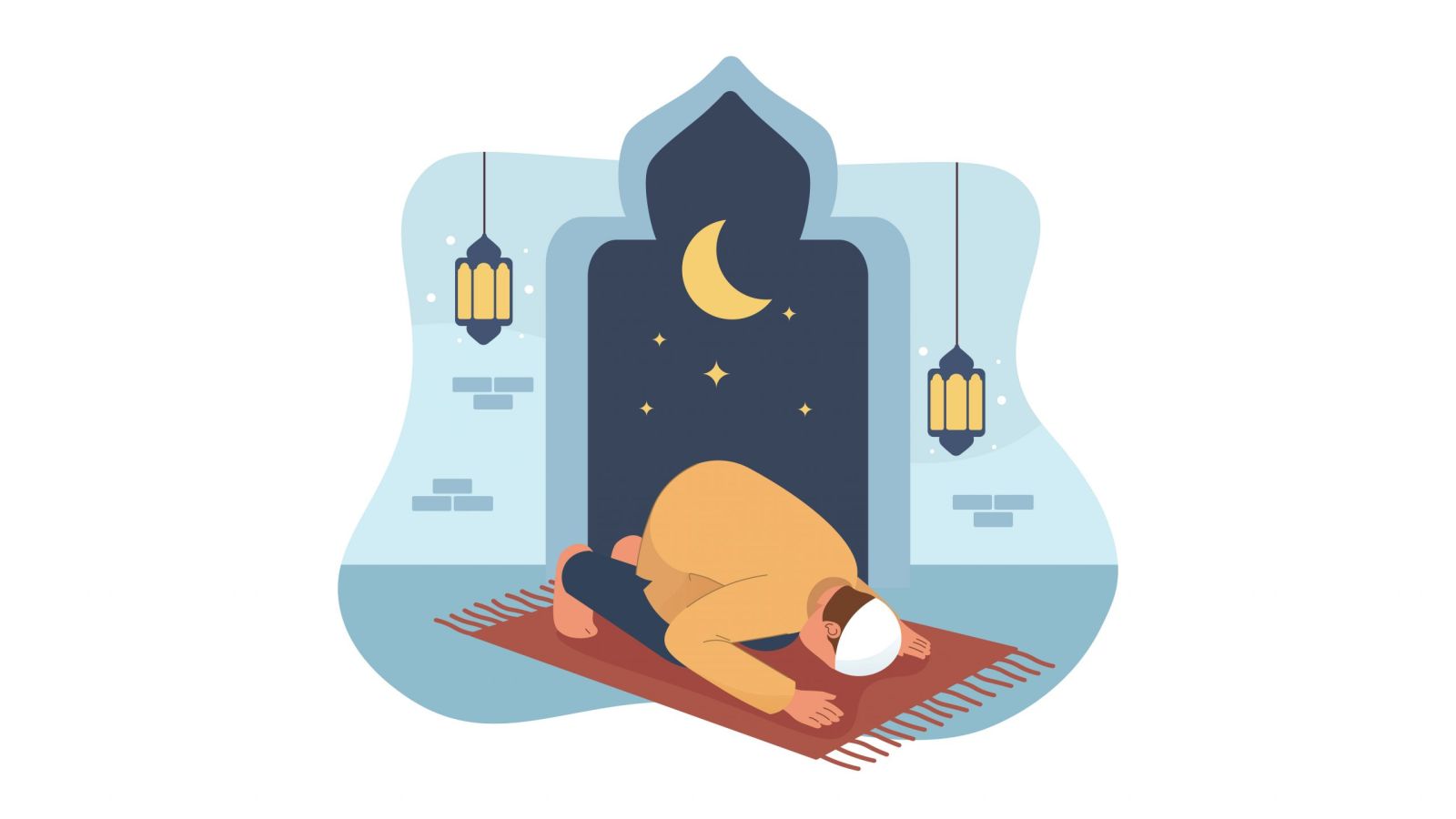Ramaḍān: A Reminder of Unity
Imām Muḥammad Nāṣir al-Dīn al-Albānī


Abū Hurayrah (raḍī Allāhu ʿanhu) related that the Prophet (ﷺ) said: “Fast when they fast, end the fast when they end theirs, and sacrifice the day that they sacrifice. “1 2
al-Bayḥaqī relates by way of Abū Ḥanīfah, who said: ʿAlī Ibn al-Aqmar related to me, from Mʿasrooq, who said: I entered upon ʿĀʾishah on the day of ʿArafah, so she said: “Serve Mʿasrooq with some gruel, and make it sweeter.” Mʿasrooq said: Nothing prevented me from fasting this day except that I feared that it may be the day of Sacrifice. So ʿĀʾishah said to me: “The day of Sacrifice is when the people sacrifice and the day of ending the fast is when the people end their fast.”
This chain of narration is jayyid (good), due to what has preceded.
Understanding the Ḥadīth:
Imām al-Tirmidhī says after quoting the ḥadīth:
“One of the People of Knowledge has explained this ḥadīth by saying: Its meaning is to fast and end the fast along with the Jamāʿah and the majority of people.”
Al-Ṣanʿānī said in Subul al-Salām (2/72):
“In this (ḥadīth) is a proof that being in agreement with the people is accepted in establishing the ʿĪd, and that the individual person who believes that it is the day of ʿĪd – because of sighting the moon – then it is obligatory upon him to be in agreement with the people, and that the ruling of the people – concerning the Prayer, breaking the fast, and sacrificing – is binding upon that individual.”
Ibn al-Qayyim (raḥimahullāh) mentioned this meaning in Tahdhīb al-Sunan (3/214), and said: “It is said: In it is a refutation of those who say that whosoever knows the positions of the moon you due to astronomical calculations, then it is permissible for him to fast and end the fast, even if others do not know. It is also said: ‘that the individual witness who sees the moon, but the qāḍī (judge) has not accepted his testimony, then there is no fasting for him, just as there is no fasting for the people.”
Abū al-Ḥasan al-Sindī said in Ḥāshiyah ʿalá Ibn Mājah, after mentioning the ḥadīth of Abū Hurayrah which was related by at Tirmidthī: “And its apparent meaning is: That there is no room for individual (opinions) to enter into these affairs, nor to act individually in this. Rather, this affair goes back to the Imām (the Leader of the Muslims) and the Jamāʿah (united body of Muslims under the Imām). It is obligatory upon the individuals to follow the Imām and the Jamāʿah. From this is that if an individual sights the moon, but the qāḍī rejects his witness, then the individual has no right in these matters, but rather he must follow the Jamāʿah in this.”
And this is the meaning which is evident from the ḥadīth, and which is emphasized by the fact that ʿĀʾishah (raḍī Allāhu ʿanhā) used it with Mʿasrooq when he prevented himself from fasting on the day of ʿArafah, fearing that it could be the day of Sacrifice. So she explained to him that there is no weight given to his individual opinion in this, and that he should follow the Jamāʿah. So she said to him: “The day of sacrifice is when the people sacrifice, and the day of ending the fast is when the people end their fast.’’
And this is what is befitting for the easy-natured and tolerant Sharīʿah (Prescribed Islamic law), one of the goals of which is uniting the people together, unifying their ranks and keeping away from them all that would split their comprehensive unity – from the individual opinions.
So the Sharīʿah dos not give any weight to the individual opinion in matters concerning ʿibādah jamaa’iyyah (collective acts of worship); such as Fasting, -ʿĪd, and Prayer in congregation – even if the opinion is correct, from one angle.
Do you not see that the Ṣaḥābah (the Companions) (raḍī Allāhu ʿanhum) used to pray behind each other. So from them were those who held the view that touching a woman, or the flowing of blood from the body invalidates the wuḍūʿ’ (ablution), along with those who did not hold this view. From them were those who would complete the Prayer whilst travelling, whilst others shortened. Yet these, and other such differences, did not prevent them from collectively praying behind a single Imām and deeming it to be acceptable. And this is because they knew that tafarruq (splitting-up) in the Religion is more evil than having ikhtilāf (differences) in some opinions. Indeed, the matter with one of them reached the extent that he would not even deem acceptable any opinion which differed with the great Imām in the major gatherings; such as the gathering at Minā (during Ḥajj), to the extent that he would totally abandon acting upon his opinion in that gathering – fleeing from that which could result from this evil, because of acting according to his own opinion.
Thus, Abū Dāwūd relates (1/307) that ʿUthmān (raḍī Allāhu ʿanhu) prayed four rakʿahs at Minā, so ʿAbdullāh Ibn Masʿūd criticised him saying: “I prayed two rakʿahs with the Prophet (ﷺ), and two rakʿahs with Abū Bakr, and two rakʿahs with ʿUmar, and two rakʿahs with ʿUthmān in the beginning of his rule, then he completed it (i.e. by praying four rakʿahs). After that the ways became divided with you all. So I hope from these four rakʿahs, that two of them would be accepted.” Then Ibn Masʿūd prayed four rakʿahs. So it was said to him: You criticised ʿUthmān, yet you prayed four? So he said: “Differing is evil.”
So those who continue splitting-up with regards to the Prayer, and who refuse to follow the local Imāms in some mosques – especially in the wiṭr Prayer during Ramaḍān – using as proof that this is against their madh′hab (school of thought), then they should reflect upon the above mentioned ḥadīth and al-athar (narration). Likewise, those who claim knowledge of astronomy and who, due to their opinion, fast and end their fast alone – preceding or lagging behind the majority of Muslims, not seeing any problem in doing so – should also reflect upon the previously quoted proofs. So all of them should consider, and reflect upon the knowledge that has been mentioned. Perhaps they will find for themselves a cure for their ignorance and self-delusion, so that they may then become a unified rank along with their Muslim brothers – for indeed the Hand of Allāh is over the Jamāʿah.
Endnotes:
- Silsilah al-Aḥādīth al-Ṣaḥīḥah (1/442-445), the ḥadīth authentication has been abridged and edited.
- Ṣaḥīḥ: Related by al-Tirmidhī (2/37). Shaykh al-Albānī authenticated it in al-Ṣaḥihah (no.224).

















